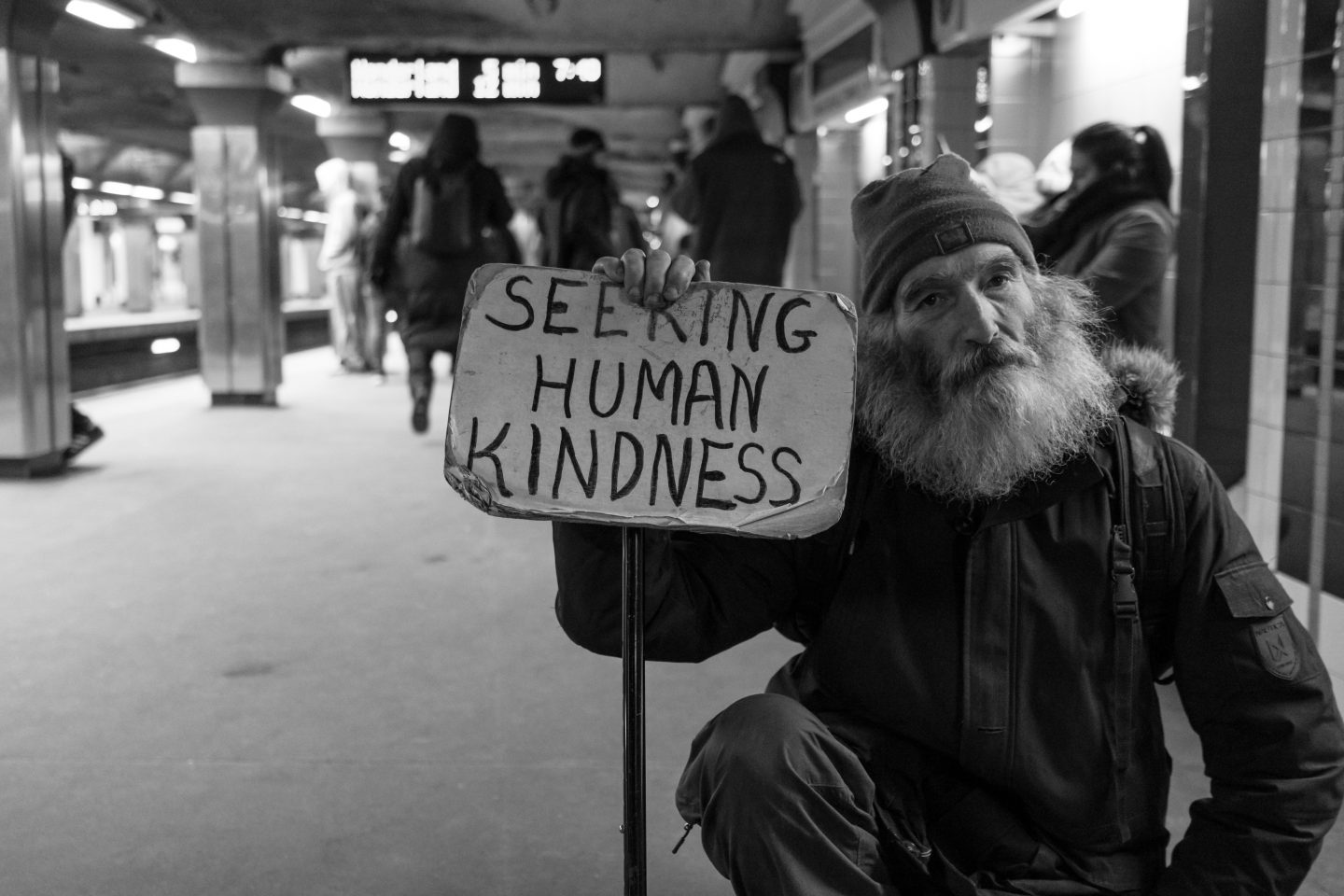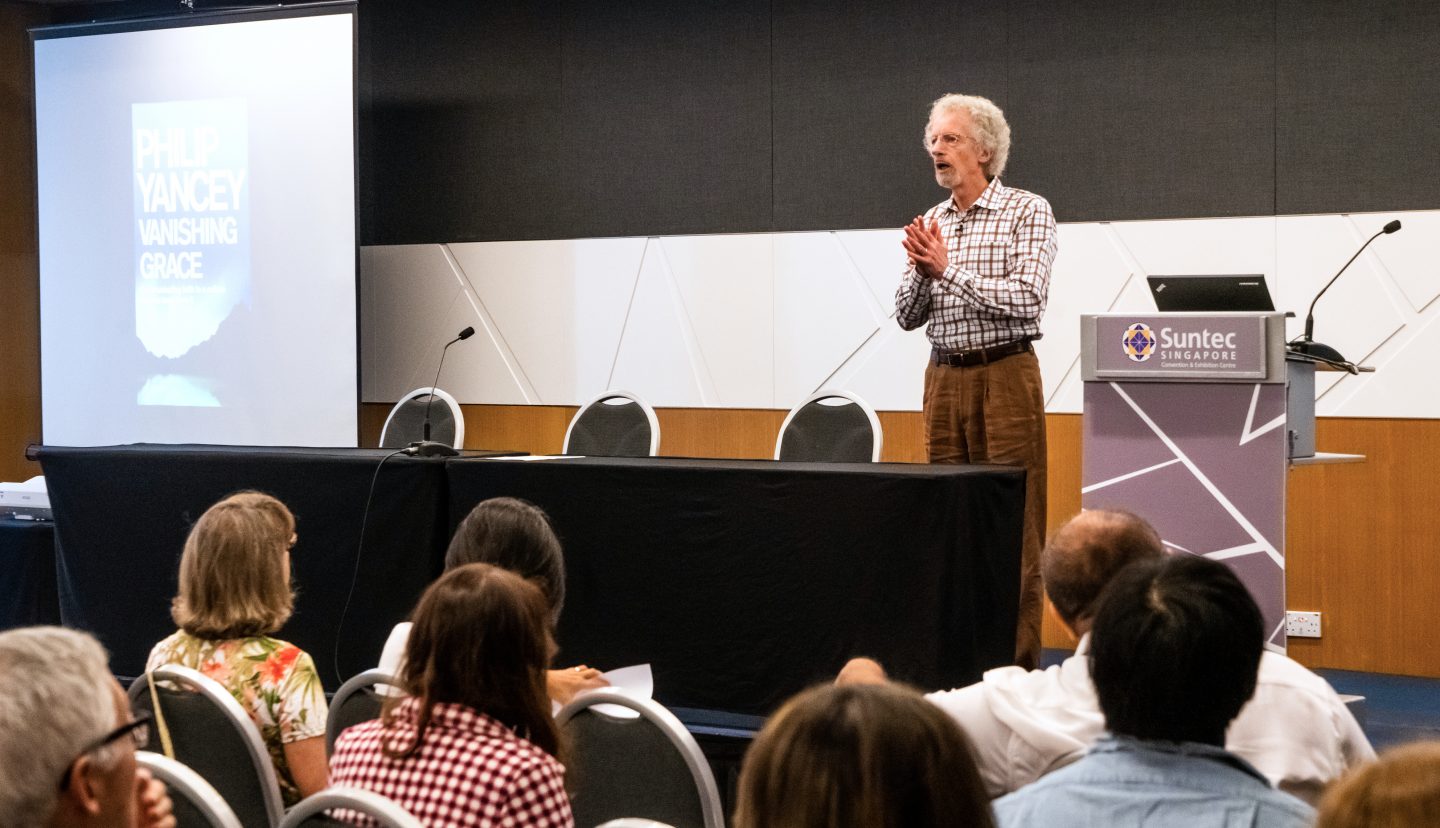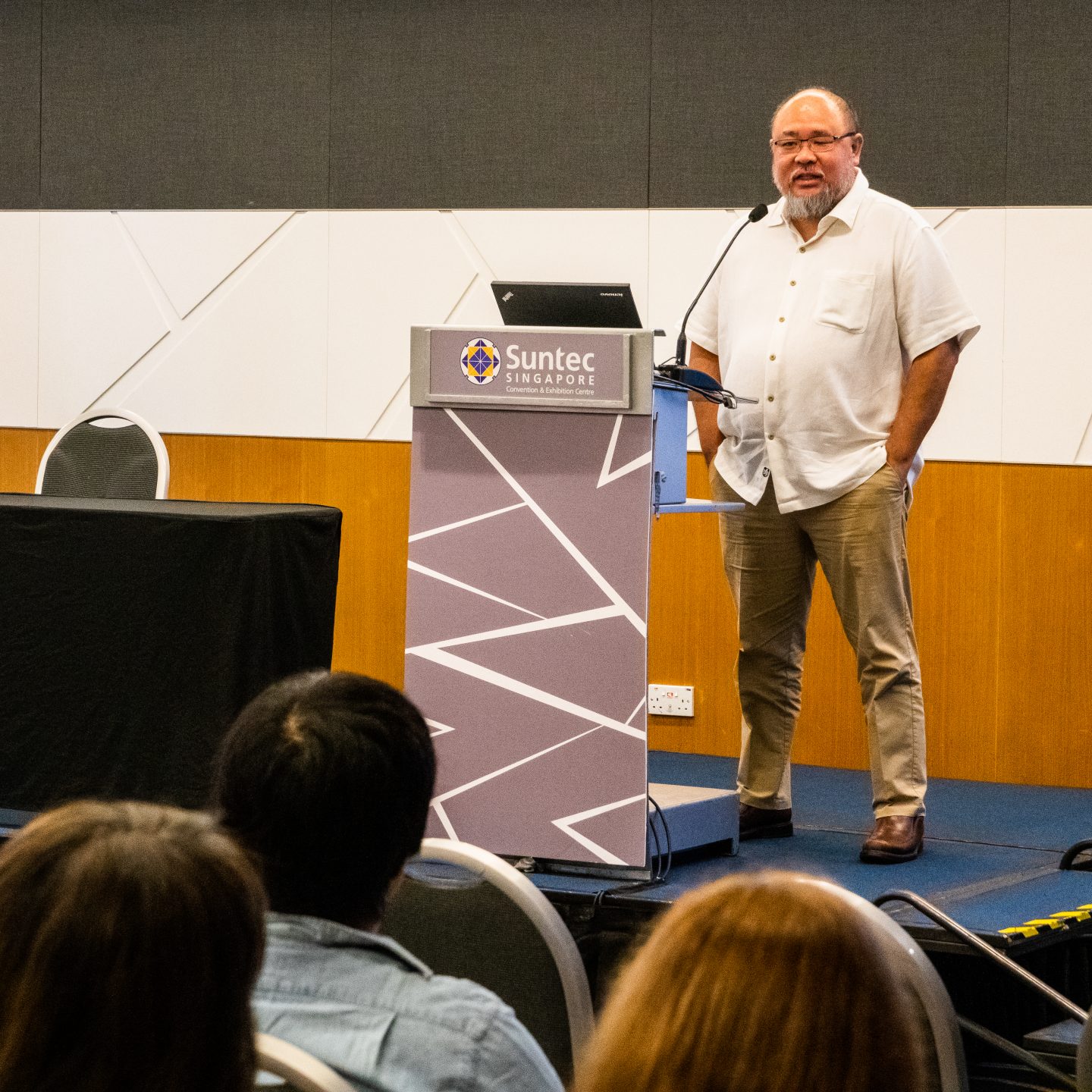“Our job is to see to it that no one misses the grace of God”: Author Philip Yancey and NGO founder Willy Tan
by Tan Huey Ying // August 21, 2019, 6:37 pm

“God has trusted us with the task of dispensing grace to a world that needs it. But from what I see, we’re not really doing a good job of that,” says author Philip Yancey. Photo by Matt Collamer on Unsplash.
We live in a culture of vanishing grace, says renowned author Philip Yancey whose best-sellers include titles like Where Is God When It Hurts?, The Jesus I Never Knew and What’s So Amazing About Grace?
Yancey is no stranger to tackling central issues of the Christian faith that consider the grace of God, having explored the topic through his books for over 40 years.
The world we live in runs on what Yancey terms as “un-grace”.
But grace shown by the Church is another matter altogether.
Speaking at an Eagles Leadership Conference 2019 workshop entitled Grace-dispensers In A Hostile World, Yancey shared the stage with Willy Tan, who works amongst refugees and internally-displaced people in the Middle East.
As the co-founder and CEO of Habibi International, Tan’s experience provided a strong counterpoint to this radical concept of “grace-dispensation”.
What on earth is a “grace-dispenser”?
At the workshop, Yancey recounted how the question of “vanishing” grace was first raised when he came across a study that showed an increasingly unfavourable view that non-religious Americans had of the Church.

“See to it that no one misses the grace of God” (Hebrews 12:15, NIV 1984), reminds Philip Yancey at the recent Eagles Leadership Conference. Photo courtesy of Eagles Communications.
According to that survey, 85% of Americans without religious affiliation had a positive impression of Christians in 1996. By 2009, that percentage had plummeted to a mere 16%. What had caused such a dramatic shift?
85% of Americans without religious affiliation had a positive impression of Christians in 1996. By 2009, it was 16%.
This set Yancey off on yet another book Vanishing Grace, which was published in 2018.
“God has trusted us with the task of dispensing grace to a world that needs it. But from what I see, we’re not really doing a good job of that.”
Yancey wondered: Are we being despised because of Jesus, or are we being hated because of the ways we are representing Jesus? Do we truly represent Jesus by the way we live, or are we just getting in His way?
In the midst of his research, however, Yancey came across a verse with a robust command that he had never noticed before: “See to it that no one misses the grace of God.” (Hebrews 12:15, NIV 1984)
But the world we live in runs on what Yancey terms as “un-grace” – “a lot of people get beaten down by that. People who don’t rank, who can’t climb the ladder”.
“We’re to see to it that no one misses the grace of God. That’s our job.”
Searching for truth
For co-speaker and Habibi International CEO, Willy Tan, the particular “no one” that he particularly ministers to is an ethnic minority in the Middle East called the Yazidis.

Willy Tan is a co-founder and CEO of Habibi International, a humanitarian organisation seeking to serve the Yazidi people in the Kurdish region of Iraq. In August 2014, ISIS launched a genocide attack on the Yazidi people and perpetrated sexual slavery on the women and girls. Photo courtesy of Eagles Communications.
In 2014, the extremist terrorist group called the Islamic State (IS or ISIS) swept through vast stretches of Iraq and Syria, attacking and conquering people and lands.
Living in a remote area of Iraq, the Yazidi people were targeted because of their ethnic religion. August 3, 2014 marked the start of a lethal IS campaign that sought to eradicate the Yazidi faith and culture. It has been recognised by the United Nations as genocide.
By known estimates, over 10,000 Yazidi men were killed and more than 7,000 Yazidi women captured as sex slaves in a span of three weeks. Tens of thousands of other Yazidis fled into the Sinjar mountains of northern Iraq.
The Yazidi people are in the midst of “discovering grace”.
In response to a desperate “prayer ladder” e-mail (a chain email) sent out by a local pastor in the area, Tan and his close friend, Dr David Yue, decided to make a two-week trip to a Yazidi refugee camp to assist however they could.
Little did they know that this would be the first of many trips into the region.
Joking that he functioned as a bouncer while Dr Yue attended to medical needs, Tan related how there were hundreds of refugees waiting to be attended to. The pair were not unfamiliar with serving communities in dire straits, but the magnitude of need that Tan experienced was on an entirely different scale.
Since March 2015, Tan has been bringing relief teams into Iraq, with some teams numbering up to 55 people.
In 2017, he co-founded non-profit Habibi International together with Dr Yue, working with the local government to provide humanitarian relief and development, primarily serving the Yazidi people in Iraq.
The “hinge moment”
Of his role as a “grace-dispenser”, however, Tan noted: “I have never experienced watching my dad get shot 50 meters away from me. I have never experienced being the only survivor of my whole family … That is a very common story (to the Yazidis).”
Five years after the atrocity of the genocide, the Yazidi people are in the midst of “discovering grace”, Tan said.
A “hinge moment” are times when people are a little more open to the idea and the gift of grace, says Yancey.
“They are still trying to understand why this happened and how they can move on. But the most powerful thing is that they are searching for something beyond their ethnicity, their culture and themselves. They are searching for truth and for a higher being,” he continued.
It is what Yancey terms a “hinge moment” which he says are times when people are a little more open to the idea and the gift of grace.
“There are a lot of people who are lost, not knowing why they are here on planet earth and where they are going. And Christians aren’t morally superior,” he said. “Sometimes Christians are worse.
“But Christians just happened to have gotten a map that says: Here’s why you’re here, and here’s where you ought to go. That’s really the only difference.”
Tan added: “None of us foreigners who go and serve the Yazidis will ever understand. I tried. I tried very, very hard to put myself in their shoes. As intimately as I can.
“But I can never be in those shoes. And I don’t pretend to.”
What he does know is this: “What I want to see is that we want to love these refugees. To love them into the kingdom of God.”
For the Yazidis and many other millions of refugees around the world, grace is a concept that has all but vanished.
All that remains for a Church that has been entrusted with communicating the grace and truth of Jesus (John 1:14) in this world, is to be grace-dispensers who “see to it that no one misses the grace of God”.
We are an independent, non-profit organisation that relies on the generosity of our readers, such as yourself, to continue serving the kingdom. Every dollar donated goes directly back into our editorial coverage.
Would you consider partnering with us in our kingdom work by supporting us financially, either as a one-off donation, or a recurring pledge?
Support Salt&Light


